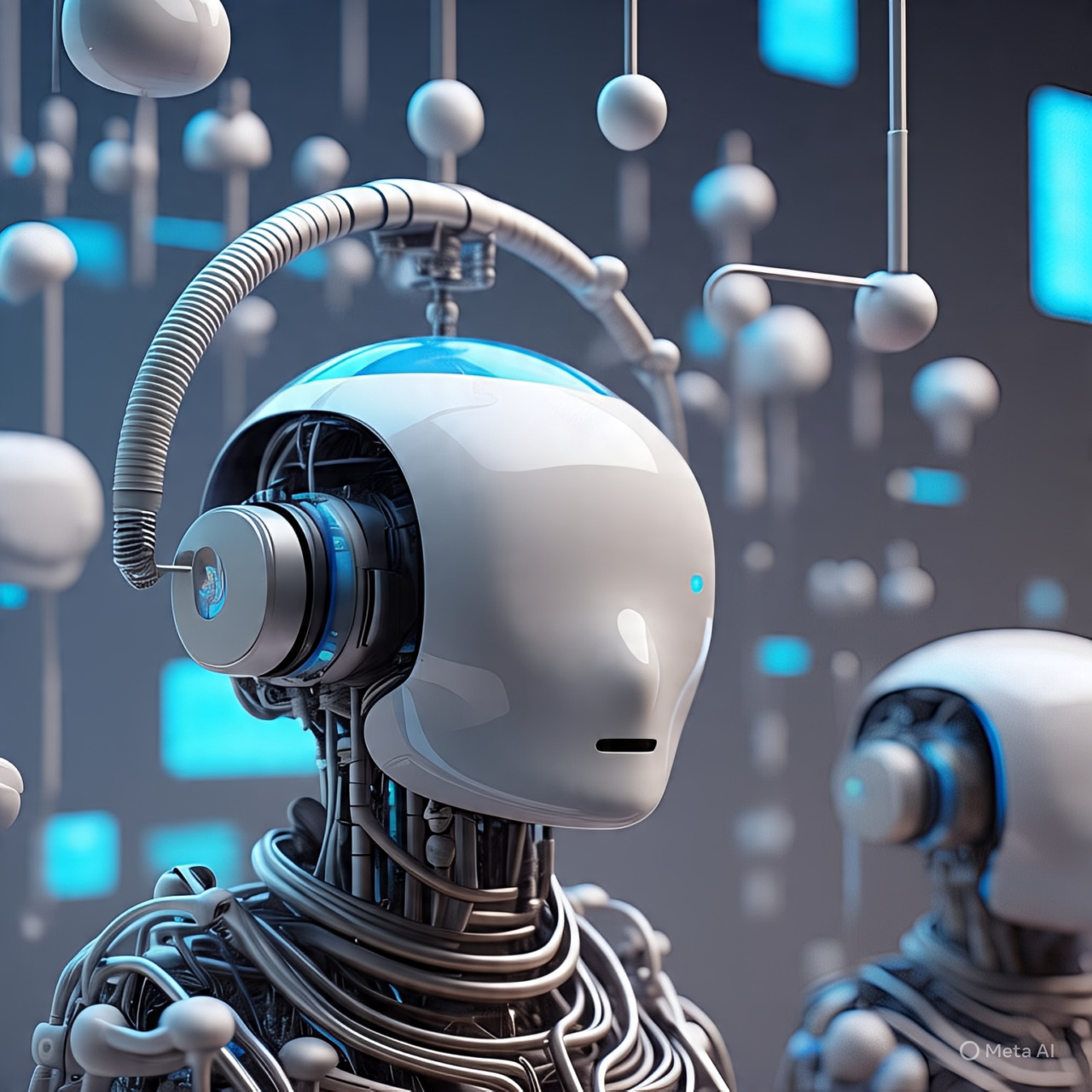As we reach the midpoint of the decade, 2025 offers a clearer perspective on one of the most fascinating and hotly debated topics of the 21st century: Artificial Intelligence (AI) vs Human Intelligence. The conversation is no longer speculative. It is grounded in real-world implementations, successes, failures, and ethical dilemmas.
This year, more than ever, has given us insights into how AI and human intelligence coexist, compete, and converge. In this post, we’ll explore how AI has evolved in 2025, what it teaches us about the nature of intelligence, and where the lines between machine and human cognition remain distinct—or blur entirely.
The Landscape of AI in 2025
Over the last few years, AI has made monumental strides. In 2025, it’s not just about smarter chatbots or faster algorithms—AI has permeated nearly every sector of society:
- Healthcare: AI systems are diagnosing diseases with near-perfect accuracy using imaging, lab reports, and genetic markers. Generative AI assists in creating personalized treatments and drug molecules.
- Education: Personalized AI learning platforms adapt to students’ styles, pace, and mental well-being, acting as mentors and tutors.
- Finance: From fraud detection to algorithmic trading, AI is making smarter, faster, and safer financial decisions.
- Creative Arts: Generative AI tools like Sora are producing award-winning novels, visual art, and music that rivals human creativity.
- Productivity: AI assistants automate everything from scheduling to project management, transforming workplace efficiency.
These achievements prompt a critical question: what defines intelligence, and how does AI’s version compare to the human kind?
Understanding Intelligence: AI vs Human Mind
1. Learning and Adaptation
AI: Machine learning thrives on large datasets, recognizing patterns and adapting quickly. However, it requires vast amounts of structured input to do so effectively.
Humans: People learn from experience, observation, and intuition. Human learning is slower but more flexible—we don’t need 10,000 examples to understand a concept.
2025 Insight: AI excels in narrow domains. But it still struggles with common-sense reasoning, something humans use every day.
2. Creativity and Innovation
AI: In 2025, AI-generated content is widespread and impressive. Yet, its creativity is largely derivative—drawing from patterns in existing data.
Humans: We create from emotion, intuition, and life experience. Human creativity often breaks rules and produces the unexpected.
2025 Insight: The most innovative results come from AI-human collaboration, not AI alone.
3. Emotional Intelligence and Empathy
AI: Emotional AI can recognize and respond to human emotions. In mental health and education, virtual AI companions are increasingly common.
Humans: True empathy involves shared experience and ethical understanding. We feel what others feel, something machines cannot replicate.
2025 Insight: AI can simulate empathy but doesn’t experience it. Human connection remains essential in roles involving care, leadership, and counseling.
4. Decision Making and Morality
AI: It analyzes massive data to optimize decisions but lacks ethical frameworks. It can’t understand nuance or values unless explicitly programmed.
Humans: People consider fairness, compassion, and morality. We make decisions influenced by culture, history, and long-term vision.
2025 Insight: Machines are not moral agents. We’ve yet to fully embed ethics into AI in a reliable, universal way.
The 2025 Tipping Point: Complementarity, Not Competition
2025 makes it clear: this isn’t a war of “AI vs Humans.” Instead, we’re witnessing the rise of AI-human complementarity.
Human-AI Teams Are Winning
In medicine, AI-human teams diagnose more accurately than either alone. In the arts, AI generates drafts, but humans provide emotional depth and originality. In law, AI analyzes legal precedent while human lawyers argue with nuance and persuasion.
The takeaway? AI doesn’t replace human intelligence—it augments it.
Challenges and Ethical Dilemmas in 2025
1. Job Displacement vs Job Creation
AI is replacing both manual and knowledge-based jobs. New roles like AI trainers, ethicists, and auditors are emerging, but the shift is disruptive.
2. Deepfakes and Misinformation
Hyper-realistic deepfakes have become a major threat to democracy and truth. Regulatory bodies are scrambling to address these dangers.
3. Data Privacy
AI’s hunger for data raises red flags around consent and surveillance. Emotion tracking and predictive profiling have far-reaching implications for civil liberties.
4. Algorithmic Bias
AI models trained on biased data can perpetuate systemic inequality. 2025 has shown the urgent need for algorithmic audits and transparency mandates.
What Makes Us Human in the Age of AI?
Despite AI’s prowess, certain elements remain uniquely human:
- Consciousness: AI lacks self-awareness or subjective experience.
- Morality: True moral judgment comes from culture, empathy, and lived experience.
- Meaning: Humans seek purpose—through love, struggle, and art. Machines don’t.
- Spontaneity: Humans act beyond rules. We can be irrational, compassionate, or unpredictable.
2025 Lesson: Our uniqueness lies not in processing power, but in meaning-making and wisdom.
The Road Ahead: Where Do We Go From Here?
1. Reimagining Education
Future education must emphasize critical thinking, creativity, emotional intelligence, and ethics—traits that define our humanity.
2. Promoting AI Literacy
AI is too powerful to remain a niche subject. Every citizen needs a foundational understanding of its risks, benefits, and inner workings.
3. Creating Ethical Frameworks
Governments, tech companies, and civil societies must collaborate to ensure ethical AI development. This includes fairness audits, transparency, and clear lines of human accountability.
4. Rethinking Work and Purpose
As AI automates routine tasks, we must explore new definitions of work, value, and fulfillment. Creativity, care, and exploration may take center stage.
Conclusion: Intelligence is Not a Zero-Sum Game
2025 has shown that intelligence—whether artificial or biological—is not a competition. It’s a spectrum, with unique strengths on each side.
Rather than fearing AI, we should shape it. With ethical foresight, inclusive education, and human-centered design, we can forge a future where AI and human intelligence thrive together.
The age of coexistence has begun. The question is no longer “AI vs humans,” but “How can we be better—together?”
What Do You Think?
Has 2025 changed your view of AI? Where do you see the greatest opportunities—or threats? Share your thoughts in the comments below!


